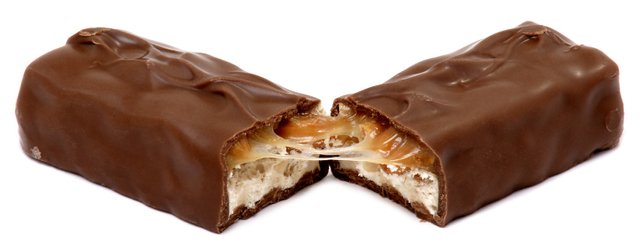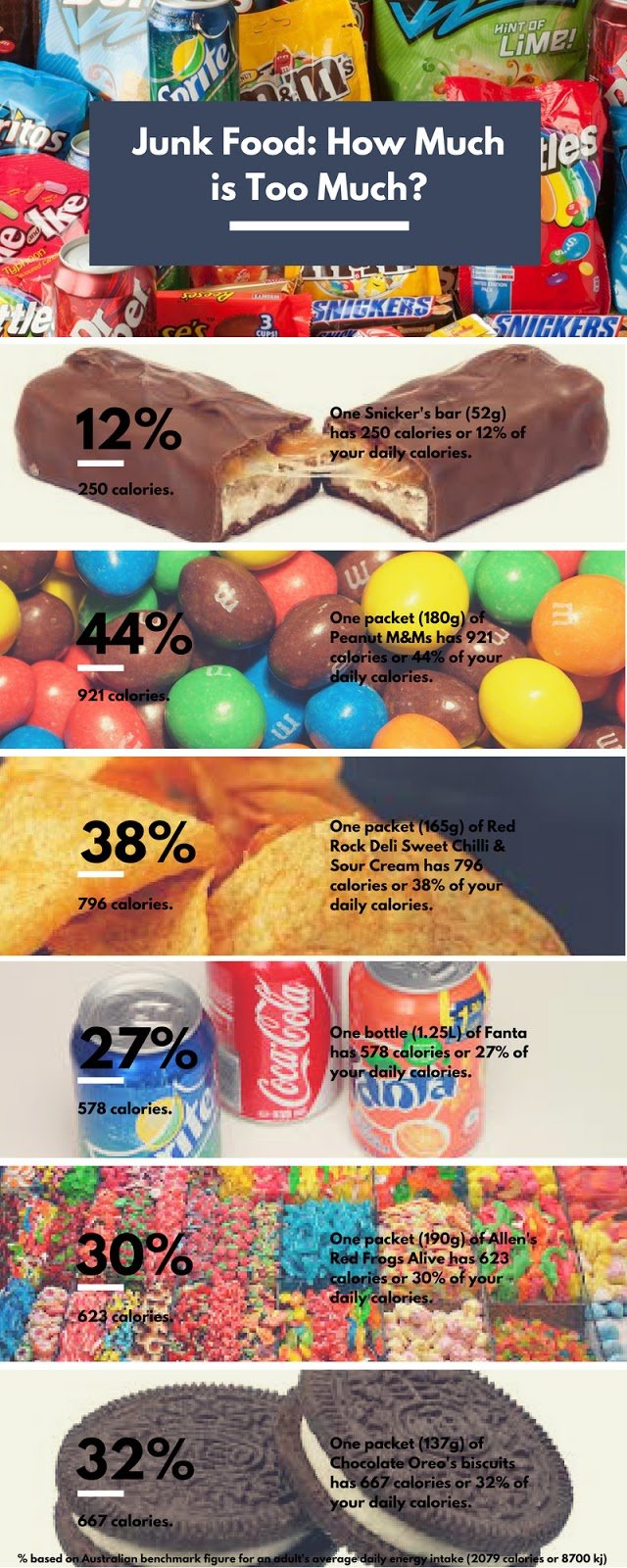Junk Food: How Much is Too Much?
A Snickers bar, Peanut M&Ms, potato chips and red frogs. What do they all have in common? They’re bloody yummy! I love my food. Even more, I absolutely love my snacks. The issue I have is portion control. I once ballooned out to 120kg as I don’t know when to say stop.
Most of us don’t realise how calorie dense some of our favourite food junk foods are. They’re high in calories from fat and sugar and offer little nutritional value in the form of protein, vitamins, fibre etc.

The excess fat, simple carbohydrates, and processed sugar can cause an increase in risk of obesity and diseases such as cardiovascular disease. Junk food consumption can also alter the brain in a similar way to addictive drugs like cocaine and heroin. These foods trigger dopamine in our brains, the feel good chemical.
A lot of us have unlimited access to junk food which makes us desensitised to what we’re eating and needing more junk food to maintain pleasure. Junk food can negatively impact our energy levels and emotional well being.
As junk food is so calorie dense, it’s easy to get carried away and start eating into your total daily intake limit. I’ve compared my 6 favourite junk foods against the Australian benchmark for an average daily intake of 2079 calories or 8700 kilojoules in the below infographic :-

How much is too much? These portions are based on eating the entire packet, something I’m guilty of. I’d combine many of the above in one sitting.
It’s not to say you can’t include these as a part of a balanced diet diet. If you have the discipline to enjoy the treats in moderation than by all means do it.
If you’re like me and portion control is something you cannot do, than it may be for the better that you avoid junk altogether. Or leave it for a cheat meal/day.